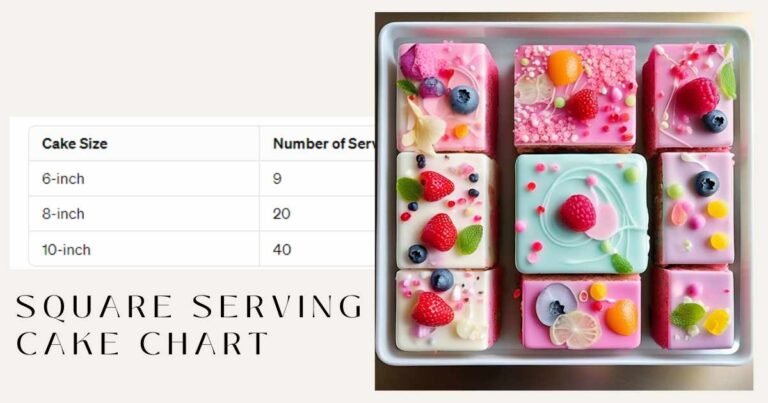Rice vinegar should be refrigerated for optimal freshness. Refrigeration helps preserve its flavor and prevent spoilage.
Introducing a tangy, slightly sweet, and versatile ingredient – rice vinegar. Known for its delicate taste and numerous culinary uses, rice vinegar is a pantry staple in many kitchens. But when it comes to storing this beloved condiment, questions arise – does rice vinegar need to be refrigerated?
The answer is a resounding yes. Refrigerating rice vinegar not only helps maintain its freshness but also preserves its distinct flavor profile. In addition to enhancing the longevity of the vinegar, storing it in the refrigerator prevents any potential spoilage or quality degradation. So, whether you use rice vinegar for dressings, marinades, or pickling, keeping it chilled will ensure that this essential ingredient remains at its best.

Credit: www.forgetotable.com
Factors Affecting The Shelf Life Of Rice Vinegar
Rice vinegar does not necessarily need to be refrigerated, but certain factors can affect its shelf life. Temperature plays a crucial role in determining how long rice vinegar can last. Exposure to high temperatures can shorten its shelf life, while storing it in a cooler environment can help prolong its freshness.
Additionally, exposure to light can also impact the quality of rice vinegar. Ultraviolet light can cause the vinegar to deteriorate more quickly, so it is best to keep it in a dark, cool place. Finally, air exposure can introduce bacteria and contaminants, leading to spoilage.
To maintain the quality of rice vinegar, it is recommended to tightly seal the bottle after each use and minimize air exposure. By considering these factors, you can ensure that your rice vinegar remains fresh and flavorful for a longer period.
The Importance Of Proper Storage For Rice Vinegar
Rice vinegar, like many other condiments, benefits from proper storage. It is important to keep it in a cool, dark place to maintain its quality. Using airtight containers can further prevent the vinegar from deteriorating. Exposure to air can cause the vinegar to oxidize and lose its flavor over time, so it’s best to avoid leaving it open for too long.
By following these storage guidelines, you can ensure that your rice vinegar remains fresh and flavorful for an extended period. Whether you’re using it in your cooking or as a dipping sauce, the proper storage of rice vinegar is key to preserving its taste and quality.
So remember to keep it in a cool, dark place and use airtight containers to maintain its freshness.
Signs Of Spoiled Rice Vinegar
Rice vinegar does not need to be refrigerated. However, there are signs to watch out for to determine if it has spoiled. Firstly, check for any unpleasant odors emanating from the vinegar, as this could indicate spoilage. Additionally, examine the appearance of the vinegar.
If it appears cloudy or has sediment at the bottom, it may have gone bad. Lastly, a significant change in taste can also be an indication that the vinegar is no longer suitable for consumption. It is important to pay attention to these signs to ensure the quality of your rice vinegar and to avoid any potential health risks.
Remember to store it properly and use it before its expiration date for the best results.
How Long Can Rice Vinegar Last Without Refrigeration?
Rice vinegar does not need to be refrigerated, whether it is unopened or opened. Unopened bottles of rice vinegar can last for a long time without refrigeration, as vinegar is self-preserving due to its high acidity. However, if you want to maintain its quality, it is recommended to store unopened bottles in a cool and dry place.
As for opened bottles of rice vinegar, it is not necessary to refrigerate them either, but doing so can help prolong their shelf life. If you choose to refrigerate opened bottles, ensure that they are tightly sealed to prevent any odors from entering.
Refrigeration is not mandatory for rice vinegar, but it can help extend its freshness.
Tips And Best Practices For Storing Rice Vinegar
Rice vinegar does not necessarily need to be refrigerated, but it is recommended for optimal storage. Storing rice vinegar in the refrigerator can help extend its shelf life. When refrigerated, rice vinegar can last for up to two years or longer.
However, if stored at room temperature, it can still be good for around six months. To extend the shelf life of rice vinegar, it is important to keep it in a cool, dry place away from direct sunlight and heat sources.
Additionally, sealing the bottle tightly after each use can also help maintain its freshness. If you notice any changes in color, odor, or taste, it is best to discard the rice vinegar as it may have gone bad. Following these storage tips and practices can ensure that your rice vinegar remains fresh and flavorful for a longer period of time.
Common Misconceptions About Storing Rice Vinegar
Rice vinegar is a staple in many households, but there are misconceptions about how it should be stored. The common belief is that rice vinegar needs to be refrigerated, but this is not necessarily true. While refrigeration is an option, it is not mandatory for every type of rice vinegar.
Some brands may recommend refrigeration to maintain freshness, while others can be stored in the pantry. The decision ultimately depends on the vinegar’s sensory indicators. If the color, aroma, and taste remain unchanged after opening, it can be safely stored in the pantry.
However, if any noticeable changes occur, refrigeration is recommended to preserve its quality. Trusting your senses can help determine the best storage method for rice vinegar. So, before refrigerating, consider the type of rice vinegar and monitor its sensory attributes.
Frequently Asked Questions Of Does Rice Vinegar Need To Be Refrigerated
Is It Necessary To Refrigerate Rice Vinegar After Opening?
Yes, it is recommended to refrigerate rice vinegar after opening to maintain its quality and extend its shelf life. Storing it in the refrigerator helps to slow down the natural fermentation process and prevent the growth of bacteria or mold.
Can I Leave Rice Vinegar Out At Room Temperature?
While rice vinegar can be stored at room temperature for a short period, it is best to refrigerate it to maintain its freshness and flavor. Exposure to heat, light, and air can cause the vinegar to deteriorate over time, so refrigeration is recommended for long-term storage.
How Long Can I Keep An Opened Bottle Of Rice Vinegar?
An opened bottle of rice vinegar can be kept for up to one year if properly stored in the refrigerator. It is important to check for any signs of spoilage or off flavors before using, and always ensure the bottle is tightly sealed to prevent air from entering.
Does Rice Vinegar Go Bad If Not Refrigerated?
Yes, rice vinegar can go bad if not refrigerated. Exposure to heat, air, and light can accelerate the fermentation process and cause the vinegar to spoil or lose its flavor. It is best to store rice vinegar in the refrigerator to maintain its quality and extend its shelf life.
Can I Use Rice Vinegar That Has Been Left Unrefrigerated For An Extended Period?
It is not recommended to use rice vinegar that has been left unrefrigerated for an extended period. The quality and safety of the vinegar may have been compromised, and it is better to err on the safe side and discard it to prevent any potential foodborne illnesses.
For best results, always store rice vinegar in the refrigerator.
Conclusion
To wrap things up, it’s clear that rice vinegar does not need to be refrigerated. While refrigeration can prolong its shelf life, it is not necessary for maintaining its quality and flavor. Rice vinegar is an acidic liquid that naturally inhibits the growth of harmful bacteria, making it safe to store at room temperature.
However, it’s important to keep it in a cool, dark place away from direct sunlight to prevent oxidation. If you prefer to refrigerate it, make sure to transfer it to a proper airtight container to ensure maximum freshness. Whether you choose to refrigerate or keep it in the pantry, always check the label for any specific storage instructions.
Remember, proper storage not only maintains the quality of rice vinegar but also ensures optimal taste in your culinary creations.





